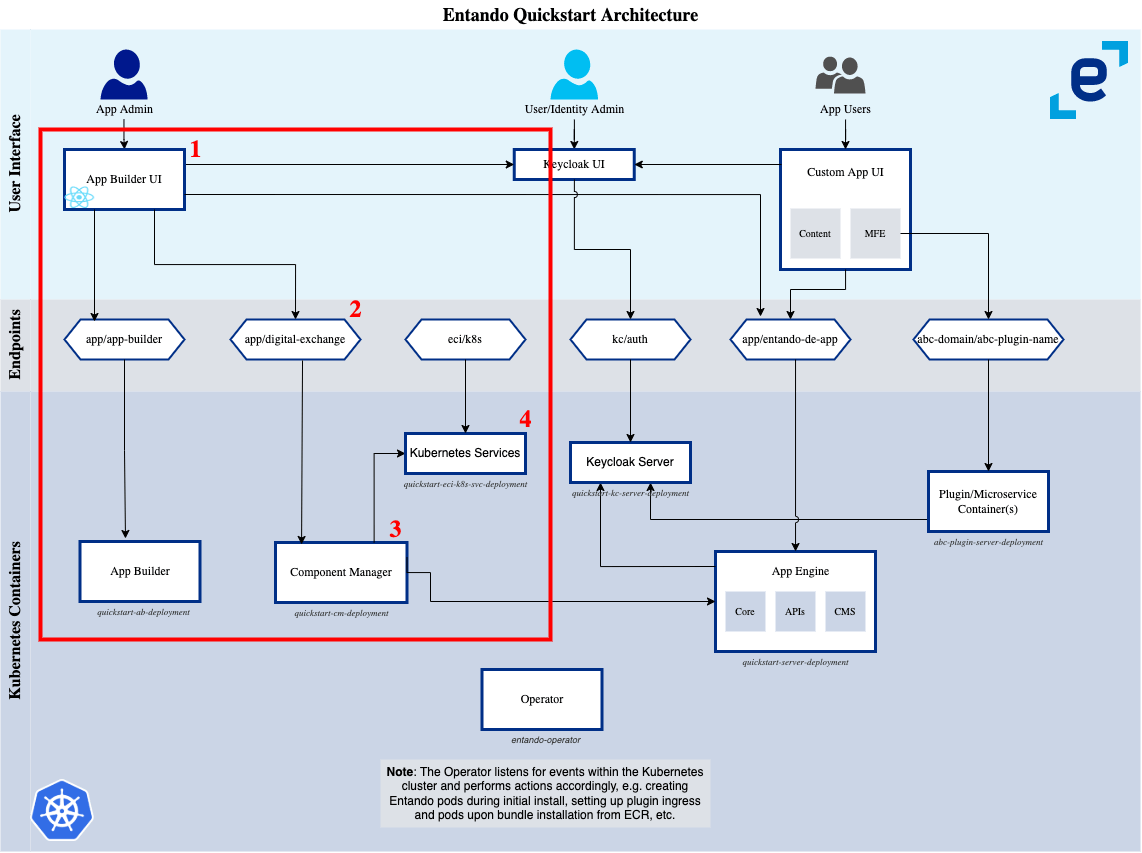# Entando Component Manager
An Entando Application is composed of the Entando App Builder, Entando App Engine, and Entando Component Manager. The Entando Component Manager (ECM) provides functionality to build and organize micro frontends and widgets from within the App Builder. It also manages the connections between an application and the installed plugins.
The Component Manager is a service that links the Local Hub of the App Builder to the core application instance. It appears as quickstart-cm-deployment in the Kubernetes pod list:

The ECM communicates with the Kubernetes service to populate the Local Hub with the bundles available as Custom Resources in the Entando namespace. These bundles can be installed in the application and managed from within the Local Hub.

In the flow pictured above:
- A user visits the Hub page in the App Builder
- The Hub makes a REST call to the
digital-exchangeendpoint - The Component Manager receives the
digital-exchangerequest - The Component Manager calls the
k8s-serviceto return the list of availableEntandoDeBundlesin the namespace
A similar process occurs when bundles are installed or uninstalled. The Entando Operator performs actions based on lifecycle events for affected Entando Custom Resources.
# Key Features:
Manages the installation and removal of bundles
Makes bundles available in the App Builder through the Local Hub
Offers the option to install only those bundles for development, production or both using Docker tags:
The environment variable
ENTANDO_BUNDLE_TAGS_TYPESin the Entando Component Manager can be used to select for development (dev), production (prod), or both (prod,dev) types of bundles to be installed to the Local Hub. The default is to install bundles with production tags only.For individual bundles, generate the bundle custom resource with the Entando CLI specifying the desired tag type(s) to be installed to the Local Hub. For more details, see the Bundle Management page.
To see a full list of Entando Component Manager environment variables, see this README (opens new window).